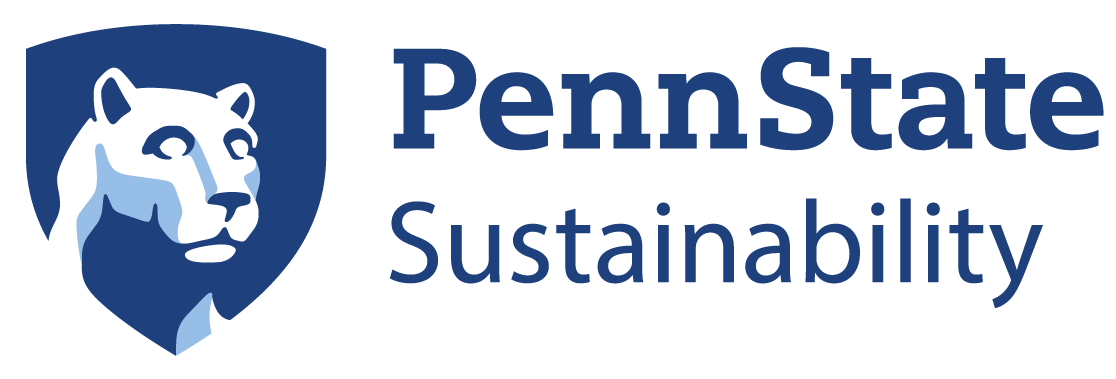Penn State Sustainability catalyzes connections between people and groups in order to help partners build and enhance their programming in a way that effectively and thoroughly advances literacy and action related to the 17 Sustainable Development Goals. In addition to supporting units in these efforts, Penn State Sustainability is also home to a variety of signature programs led by our staff that are aimed at achieving specific goals related to the mission and values of Penn State Sustainability and Penn State:
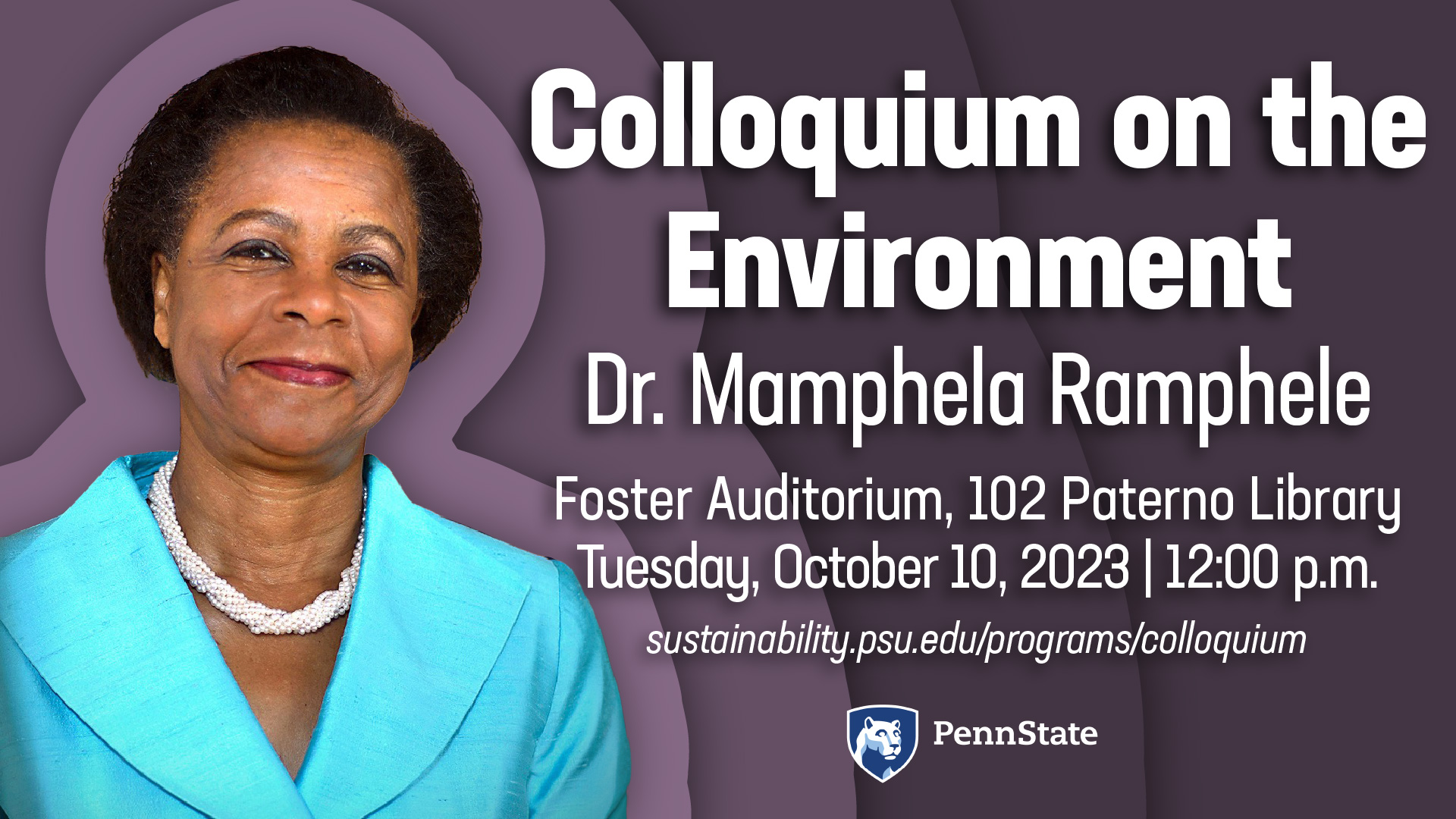
Colloquium on the Environment
Since 2003, the Colloquium on the Environment has brought to Penn State world-renowned speakers who approach sustainability challenges from all angles and who focus on solutions. Co-presented by Penn State Sustainability and the Institute for Energy and the Environment, the Colloquium has brought in the past speakers such as evangelical climate scientist Katharine Hayhoe; “father of environmental justice” Robert Bullard; pioneer in sustainable development Hunter Lovins; former director of the Environmental Protection Agency Lisa Jackson; and many more. With all speakers, our commitment is to creating engaging dialogues for students, faculty, staff, alumni, and the general community with opportunities for competency-building and visioning.
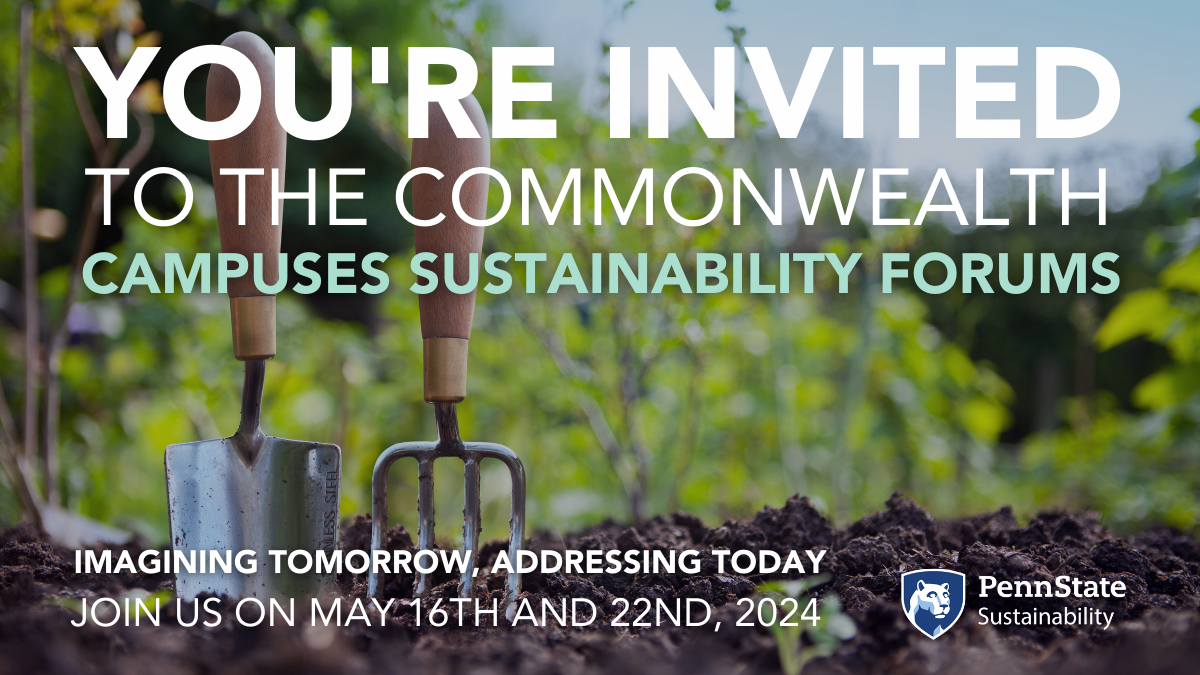
Commonwealth Campus Sustainability Forums
Each May, Penn State Sustainability gathers together interested faculty, staff, and students from across all 23 of Penn State’s Commonwealth Campuses for forums in the east and west of the state that celebrate the sustainability accomplishments of our CWCs, allow people to brainstorm and network on solutions to challenges the CWCs are facing, and visioning about what else is possible for sustainability at Penn State. The events are free and open to all.
In 2024, the western forum is at Penn State Shenango on Thursday, May 16, and the eastern forum is at Penn State Schuylkill on Wednesday, May 22. Click to learn more about the agenda and how to register.
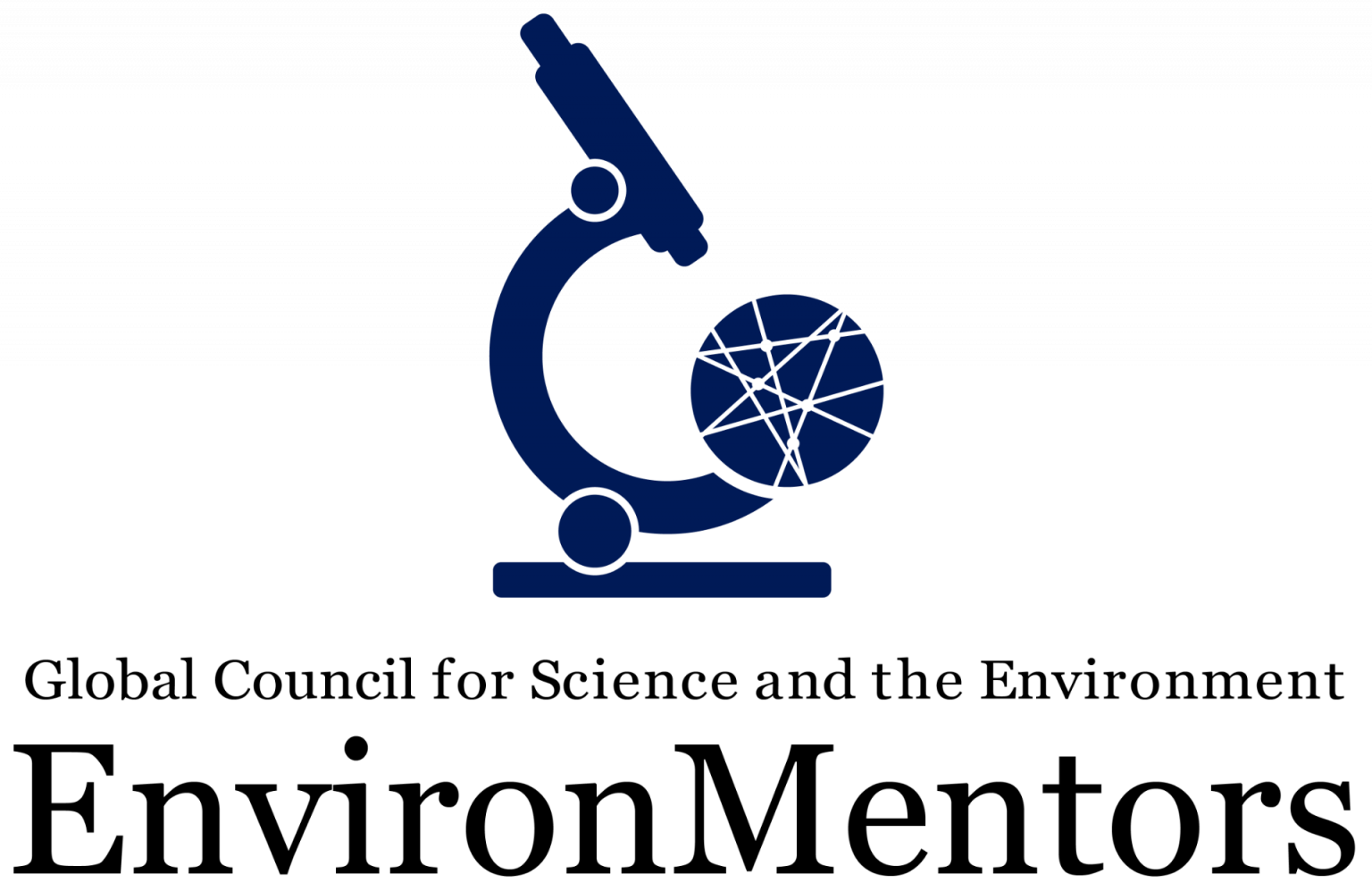
EnvironMentors
EnvironMentors is a college access program for underrepresented and underserved high school students across the country, created by the Global Council for Science and the Environment (GCSE). EnvironMentors has the mission to mentor and motivate high school students from underrepresented and underserved communities in Science, Technology, Engineering, and Math (STEM). With the guidance of individual mentors, EnvironMentors students gain exposure to STEM degrees and career opportunities and enhance their research, critical thinking, and communication skills. Since its creation, the program has paired over 2,000 high school students with mentors across the nation.
Penn State joined the EnvironMentors network in 2018 and has the goal of changing the narrative in STEM by connecting underrepresented college and high school students across Pennsylvania to STEM opportunities via its resources. It currently operates at 4 Penn State campuses. The Penn State EnvironMentors chapter is now housed in the Sustainability Institute at University Park, having previously been housed in the Institutes of Energy and the Environment (IEE) there.
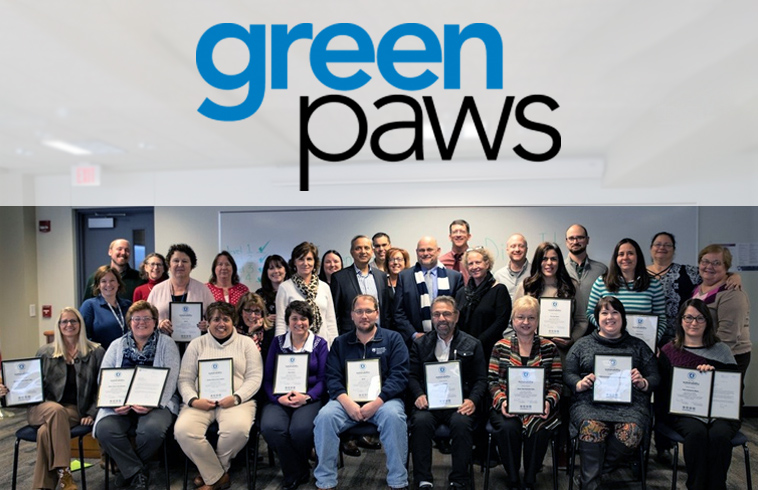
Green Paws
The Green Paws Program is a simple, yet effective way for faculty and staff to learn how to use resources efficiently in the office and earn a Green Paws Office Certification for their efforts. The program is organized into four levels of certification that signify an office’s progression toward higher and higher levels of efficiency, health, and environmental sustainability. Through this program, Penn State is creating a baseline of stewardship best practices and working toward the University’s goal, outlined in its Sustainability Strategic Plan to “Incorporate sustainability learning opportunities into daily life across the University, including the built environment and service and program delivery.” More than 2,200 faculty and staff have started this path with the Green Paws Program.
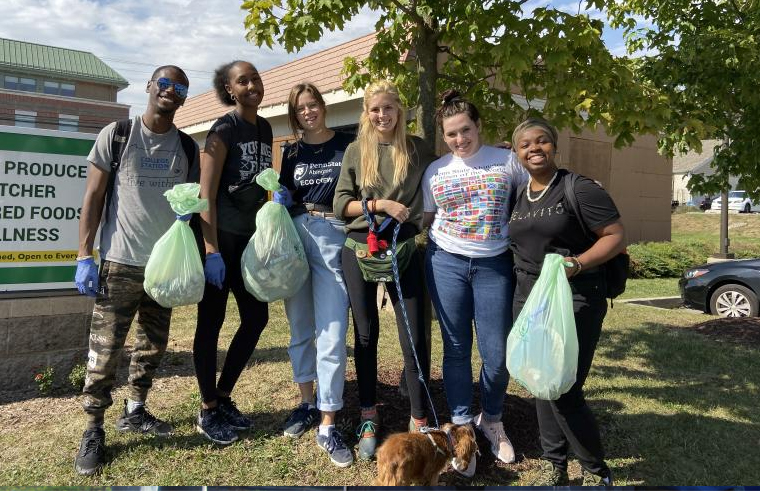
Green Teams
Green Teams are groups of faculty, staff, and students volunteering to engage and educate their peers to help their organization (college, department, building, etc.) operate in a more efficient, innovative, and healthy way. Typically, Green Teams focus on making their operations more sustainable through initiatives unique to their departments and/or the easy to follow Green Paws Program.
Currently, the University has 30 Green Teams operating in various colleges and units and 11 of them at the Commonwealth Campuses. This network of change agents work with the Colleges’ Sustainability Councils, which have been formed to strategically advance the University’s sustainability goals, matching the work to the College’s unique mission.

Intersections Film Series
Intersections: a sustainable world is one of intersections–between sustainable development goals like gender equity and climate change and between fields of study that approach these issues, from engineering to sociology to visual arts. Penn State Sustainability offers three series of films that explore these intersections on issues ranging from labor rights to water to climate change. Join us for monthly online screenings and post-film panel discussions that to-date have screened over 50 films, featured over 100 speakers including Oscar-winning filmmakers, and drawn more than 6,500 participants.
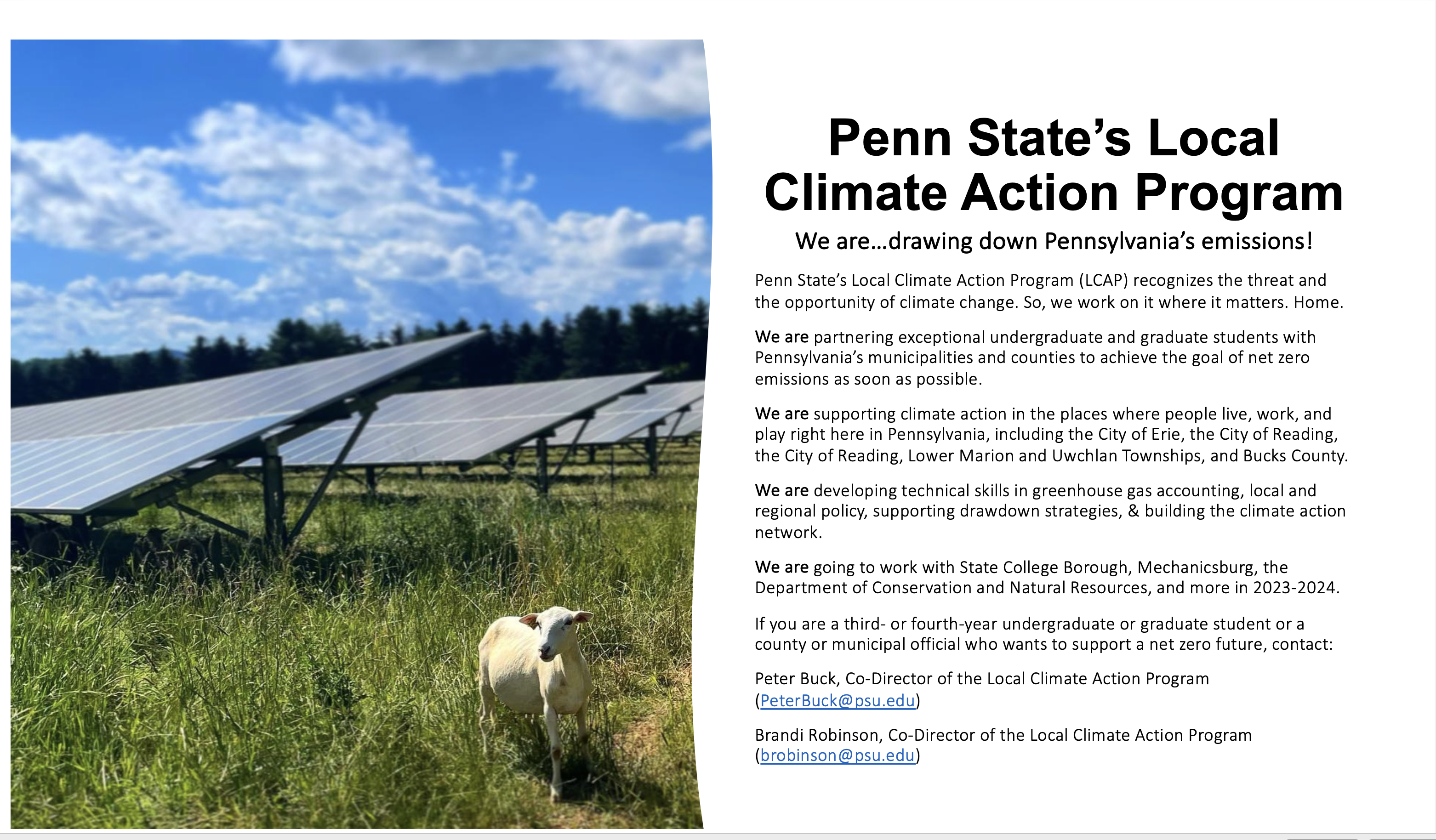
Local Climate Action Program (LCAP)
The Local Climate Action Program (LCAP) is built on a simple idea: cooperation can make Pennsylvania’s communities draw down carbon emissions and support the places we call home. The LCAP brings Penn State students, faculty, local governments, and experts from different fields together to support and create a thriving and prosperous future for all Pennsylvanians.
The LCAP partners upper-level Penn State students with Pennsylvania’s local governments to determine a community’s contribution to climate change and help that government develop plans to draw down carbon emissions and adapt to a changing climate.
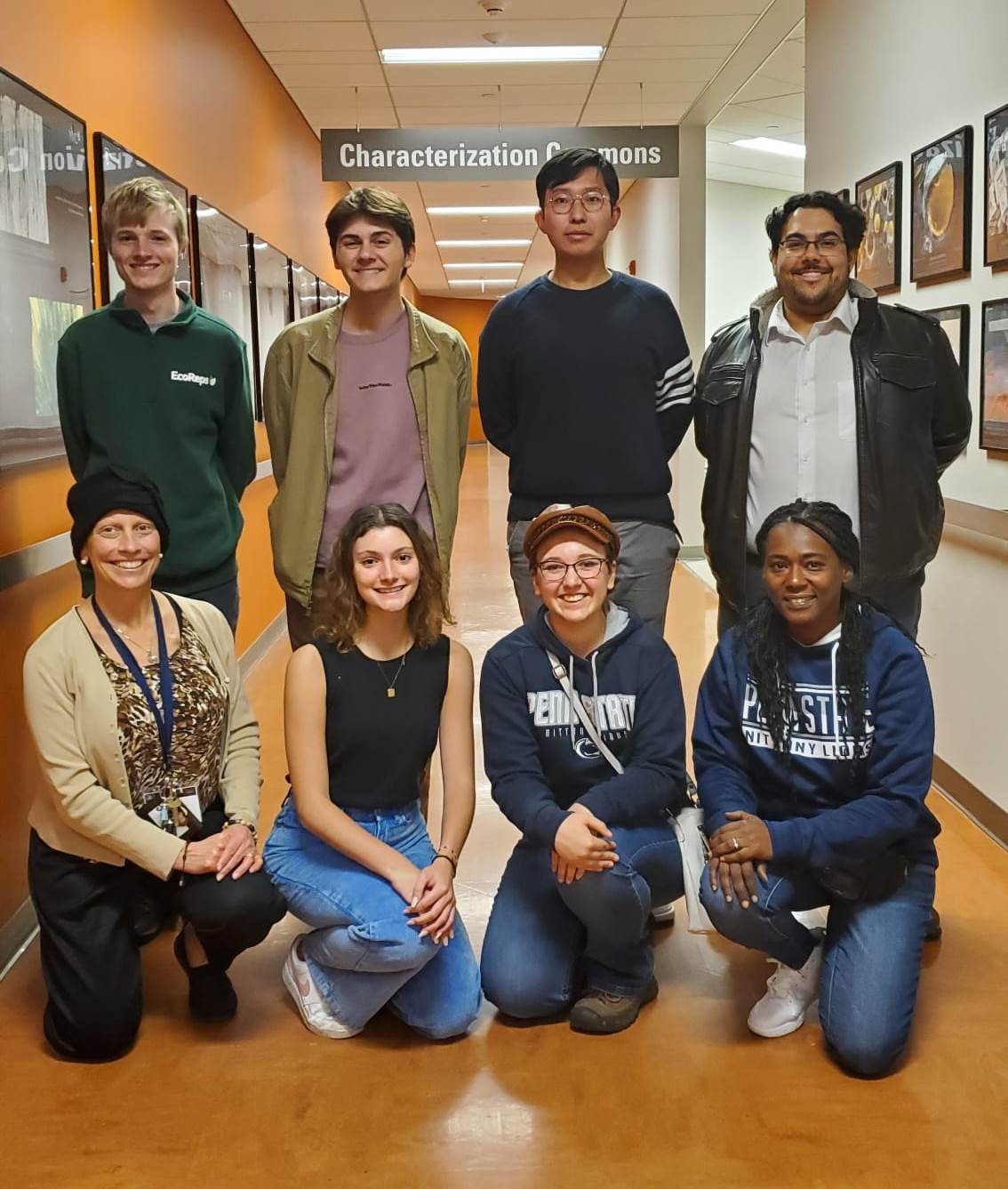
Penn State Sustainable Labs Program
The Sustainable Lab Program is motivated by the recognition that research itself contributes to sustainability challenges by being naturally energy and resource intensive. Penn State is taking on this challenge by piloting the nonprofit My Green Lab’s (MGL) certification program that assesses 14 target areas for behavioral change. The award-winning program recruits cohorts of student sustainable lab ambassadors who are paired with Penn State labs to help conduct audits of the labs and make recommendations about how the labs can reduce the environmental impacts of their operation. The program both benefits Penn State and the labs by reducing our impact and costs and benefits our students, providing industry-demanded experience and competencies that make them more competitive on the job market.
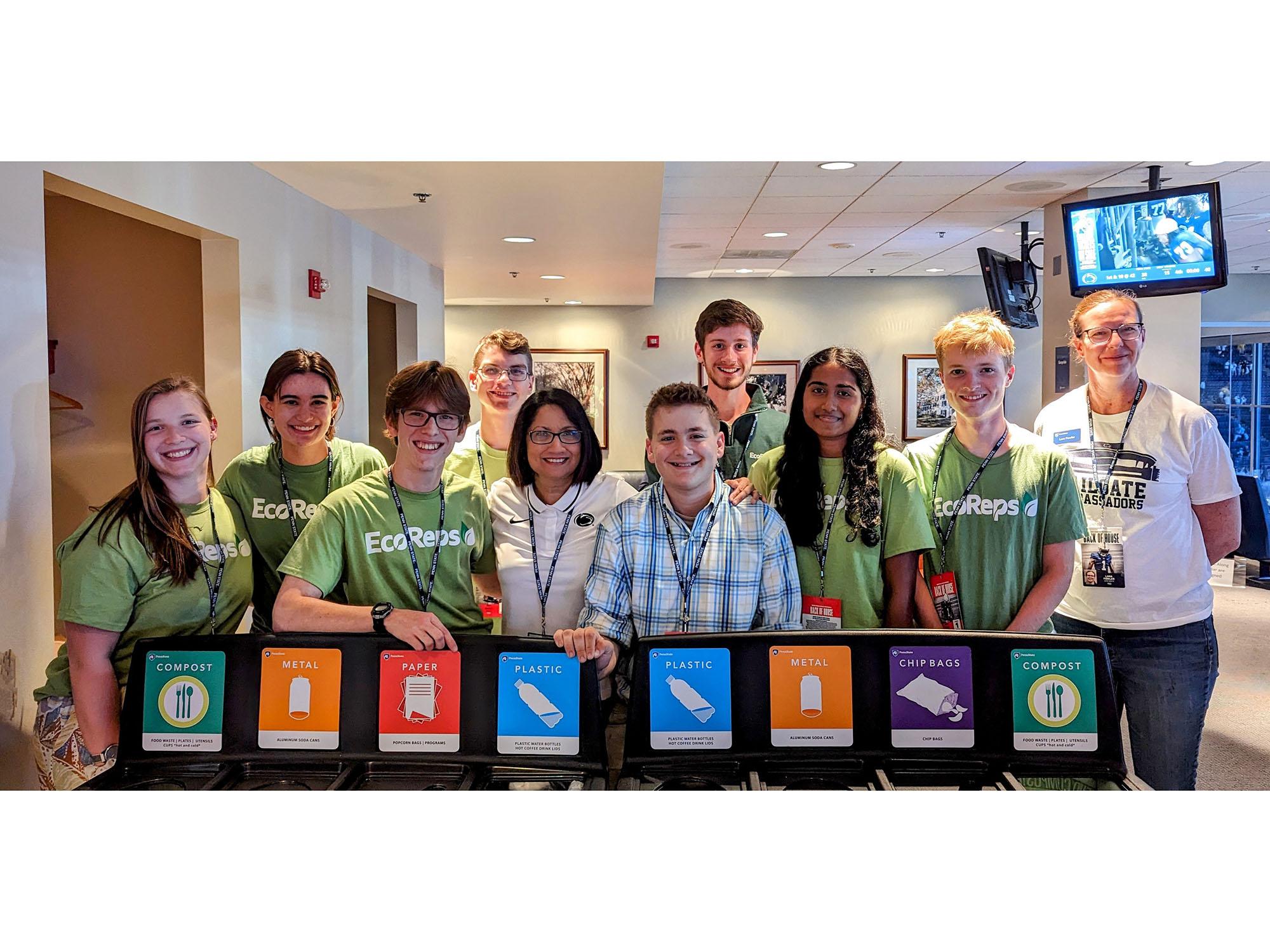
PSU EcoReps
EcoReps are student educators for sustainability at Penn State’s University Park Campus. Through a focus on educating first year students in East and Pollock residence areas, we are able to communicate Penn State’s commitment to sustainability from students’ very first day on campus. The EcoReps program consists of frequent building outreach events by EcoRep groups and 6 large, team-wide events throughout the year.
The EcoReps program consists of roughly 60 EcoReps, 7 Assistant Program Coordinators, 2 Senior Program Coordinators, a program Graduate Assistant, and our 2 Program Advisers. The program is a joint effort between Penn State Sustainability and Housing.
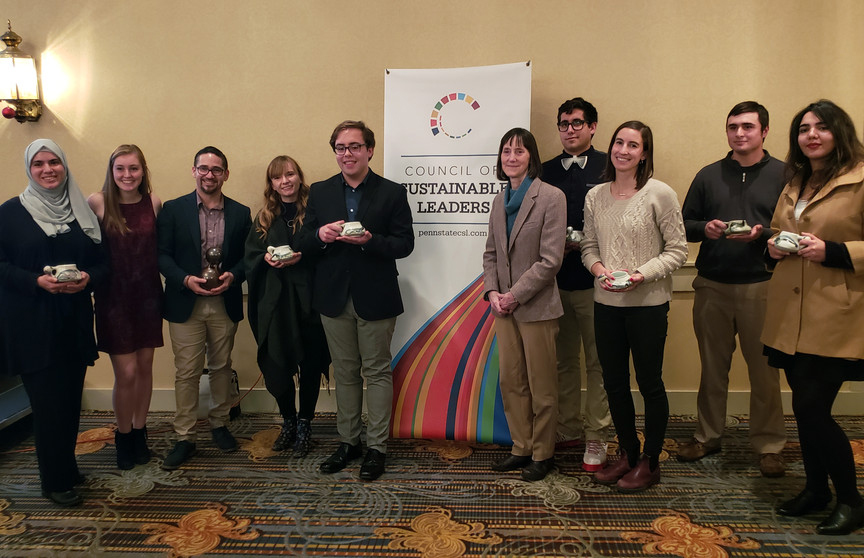
Roe Awards
The Dr. John Roe Fund for a Just and Sustainable Future honors the late Penn State mathematics professor Dr. John Roe, who was passionate about sustainability and the outdoors and worked tirelessly to incorporate these values into his teaching.
There are two award tracks benefitted by the Fund. The first, is the John Roe Sustainability Impact Award, which annually recognizes students who cultivate opportunities to advance the United Nation’s 17 Sustainable Development Goals, while demonstrating personal integrity and an unwavering commitment to fostering justice and to strengthening partnerships. The second track, the John Roe Sustainability Curriculum Development Award, is offered to faculty each year in collaboration with various Penn State partners and calls for the creation of new or revised courses with a focus on sustainability.
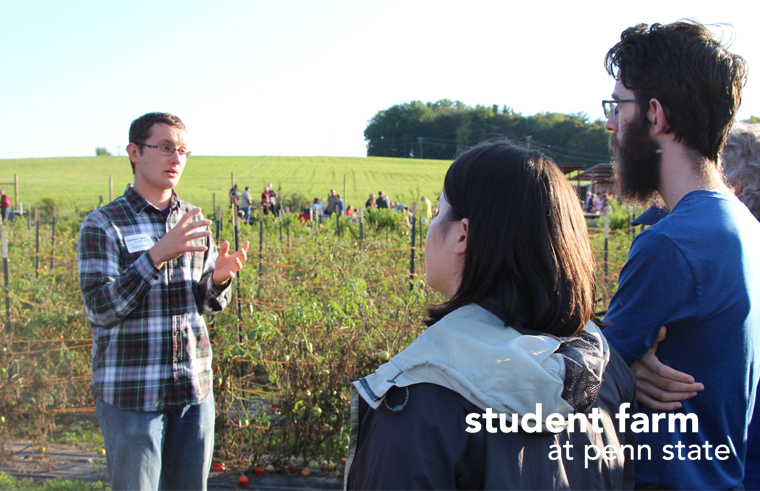
Student Farm at Penn State
The Sustainable Food Systems Program views our own Penn State campus food system as a living laboratory for engagement in sustainable food and agricultural systems. We link classroom education with experiential learning, student-led research and community outreach.
We grow plants, and so much more… growing minds, growing community, and growing food! Core components of the SFSP include the working 3-acre Dr. Keiko Miwa Ross Student Farm, a highly active Student Farm Club, the Food Bank Harvest Project, partnership with the Lion’s Pantry and course collaborations across Penn State academics and operations. The SFSP is a launching point for conversation about many issues, including food security, food waste, and other pressing issues of our time.
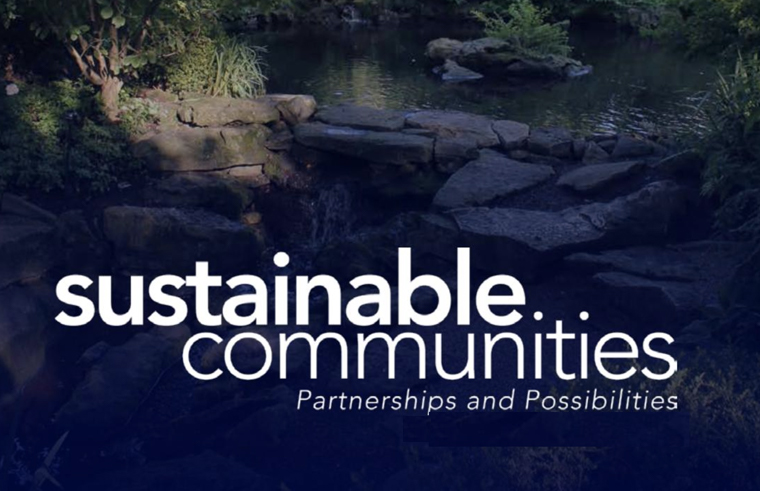
Sustainable Communities Collaborative
The Sustainable Communities Collaborative (SCC) connects University Park faculty, students, and staff with local communities to address sustainability challenges through an engaged, collaborative effort.
Innovative University/community-based collaborations are developed to engage PSU faculty and students in existing courses from across the University with real world, community-identified projects to meet the partnering community’s sustainability priorities. Each project is a facilitated effort, involving interdisciplinary faculty expertise and students, co-led by a key community leader and the University’s SCC staff, to help develop and support thriving, healthy communities and advance student learning about the scholarship of sustainability.
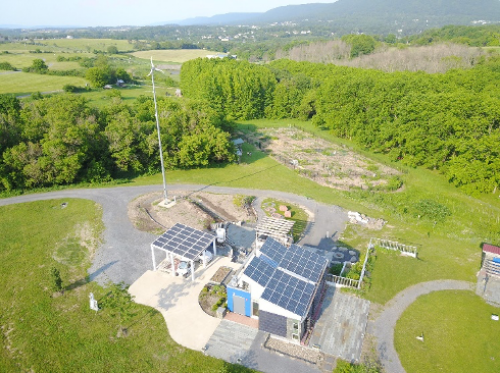
Sustainable Experience Center
The nine-acre Sustainability Experience Center sits at the edge of the Penn State University Park campus and houses a number of individual projects that focus on food, water, energy, and climate. Penn State Sustainability serves as the caretaker/facilitator managing the interactions between the projects and the public tours offered of the various site features. Most prominently, the site features Penn State’s MorningStar Solar Home entry in the 2008 Solar Decathalon; the EcoMachine biodigester; the Campus Garden with 96 plots available for students, faculty and staff; two wind turbines used by Penn State’s Wind Energy Club; and two longitudinal tree provenance studies. Educational tours of the site are available by filling out our tour request form.

Sustainability Career Programming
Beginning in 2025-26, Sustain Penn State is offering programming specifically targeted at students to help them succeed by helping them explore sustainability-related careers. Programs will include webinars where they can learn from Penn State alumni about their career trajectories in different realms of sustainability, as well as partnerships with Penn State colleges to offer career fairs and other in-person gatherings. Check back frequently as we update our 2025-26 schedule of career-related events!
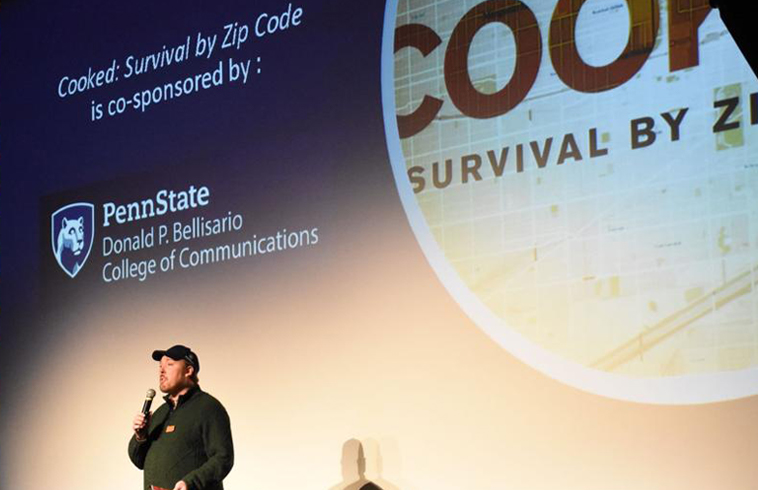
Sustainability Showcases
The Sustainability Showcases aim to bring sustainability experts to Penn State from across the full 17 United Nations Sustainable Development Goals to broaden Penn State’s discourse surrounding sustainability. Speakers give a keynote talk but also come to campus for multiple days to offer in-person, hands-on workshops around sustainability competencies that students want as part of their sustainability education. Past speakers have included a leading chef in the Indigenous foodways movement, an award-winning climate journalist, and an award-winning eco-poet, author, and beekeeper published by Penn State University Press.
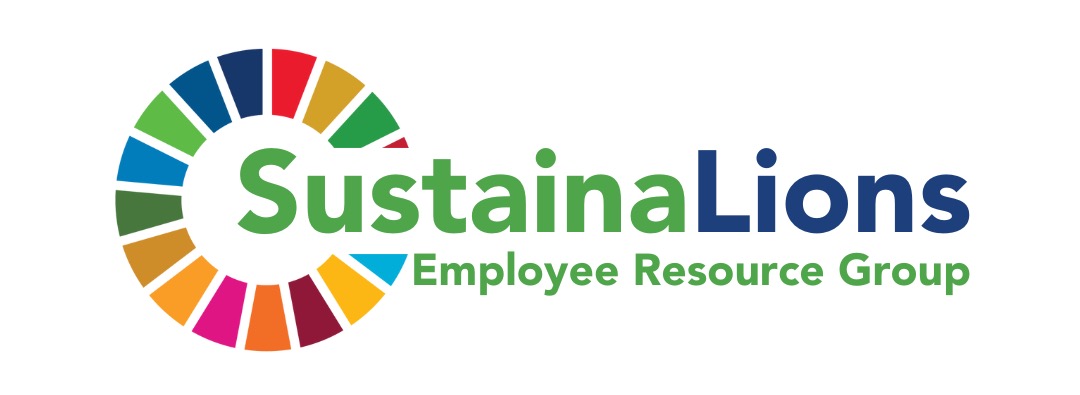
SustainaLions
The SustainaLions Employee Resource Group (ERG) connects a diverse network of Penn State employees dedicated to advancing the University’s sustainability goals. Our mission is to foster a supportive community that empowers members to grow personally and professionally, while promoting sustainability across all aspects of life.
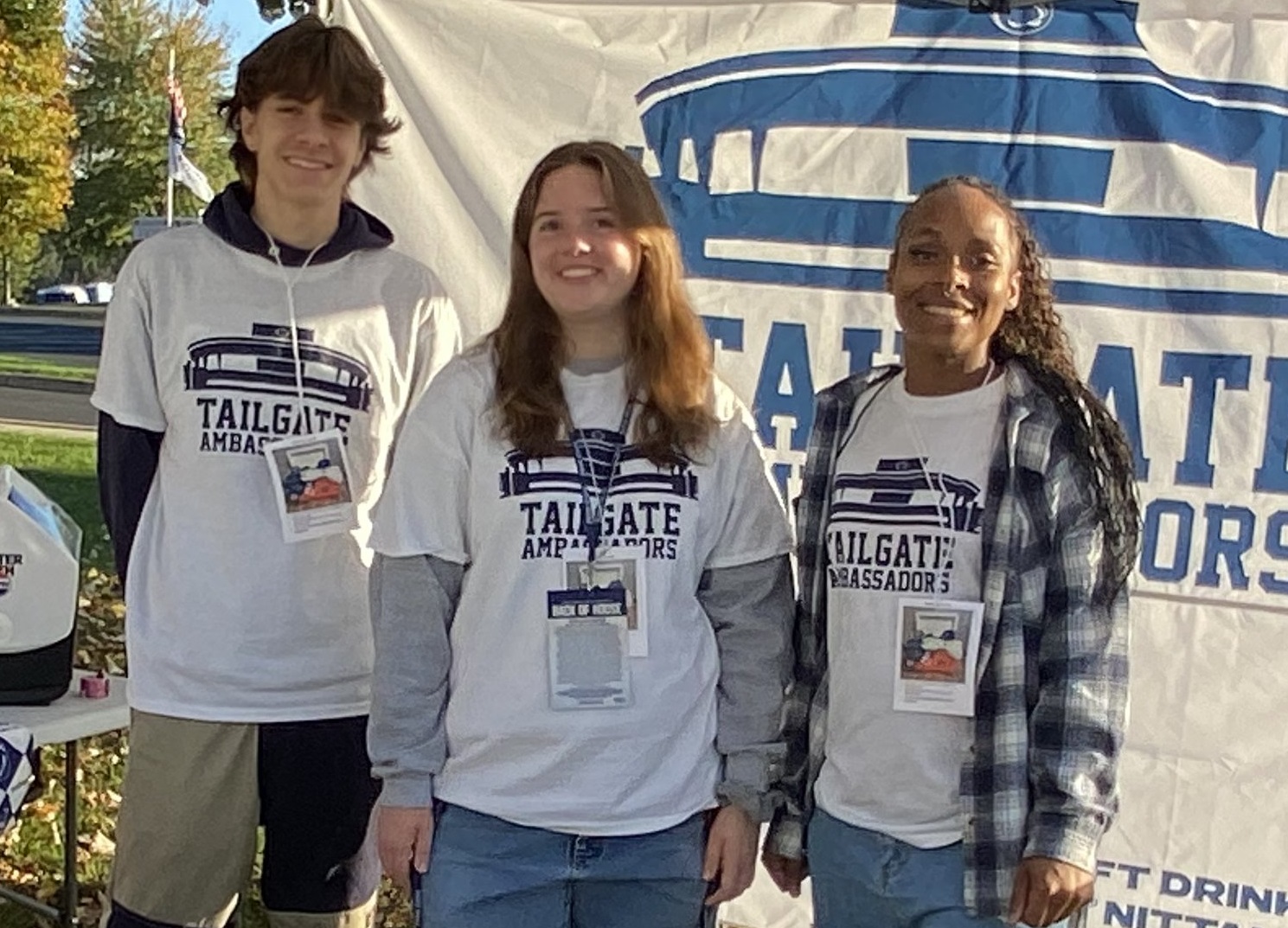
Tailgate Ambassadors
Tailgate Ambassadors promote sustainability and improve the fan experience in tailgating lots on game days at Penn State. Ambassadors staff, on a rotational basis, an informational tent near Beaver Stadium to engage fans in recycling games and give away prizes and walk around the lots interacting with fans.
Tailgate Ambassadors can expect to work at least four hours every home football game day and for the Blue and White game day. Exact times may be dependent on the kickoff time, and shifts will finish at least 30 minutes before kickoff. Positions are open for any current Penn State student.
